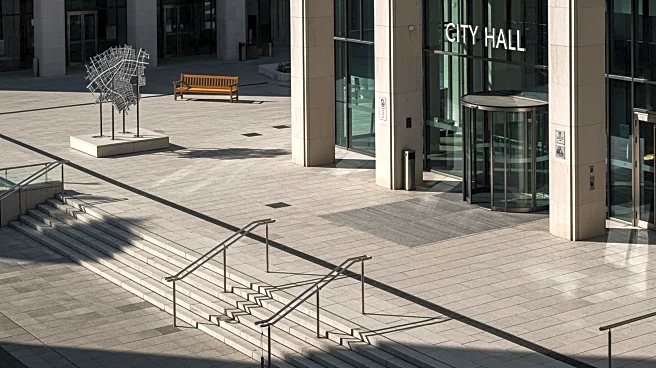Rapid Read • 8 min read
Brazilian authorities have suspended the soy moratorium, a key agreement aimed at protecting the Amazon rainforest from deforestation. This decision potentially opens up an area the size of Portugal to agricultural destruction. The moratorium, established in 2006, was a voluntary agreement among farmers, environmentalists, and international food companies to prevent soy cultivation on deforested land. The suspension comes ahead of the Cop30 climate summit in Belém, raising concerns among conservation groups about the influence of agribusiness on environmental policies. The anti-monopoly agency, Cade, has given grain traders a deadline to suspend the moratorium or face penalties, citing concerns over the sharing of commercially sensitive information.
AD
The suspension of the soy moratorium poses a significant threat to the Amazon rainforest, which is crucial for global biodiversity and climate regulation. The decision could lead to increased deforestation, undermining Brazil's climate targets and affecting international efforts to combat climate change. The move reflects the growing political power of agribusiness in Brazil, which has been pushing for policies that favor agricultural expansion over environmental protection. This development could impact global supply chains, as companies may face pressure to source soy from deforested areas, affecting their sustainability commitments and reputations.
The suspension of the soy moratorium is likely to lead to legal challenges, as conservationists and environmental groups seek to reverse the decision. International companies involved in the agreement may continue to adhere to its principles individually to maintain their reputations. The upcoming Cop30 climate summit will be a critical platform for discussing the implications of this decision and exploring solutions to protect the Amazon. Stakeholders, including consumers and retailers, are expected to play a vital role in advocating for sustainable practices and influencing market demand.
The suspension highlights the tension between economic interests and environmental conservation in Brazil. It raises ethical questions about the responsibility of businesses and governments to protect natural resources. The decision could lead to long-term shifts in land use policies and affect indigenous communities who rely on the forest for their livelihoods. The global community's response to this development will be crucial in shaping future environmental policies and addressing the challenges of balancing economic growth with sustainability.
AD
More Stories You Might Enjoy












